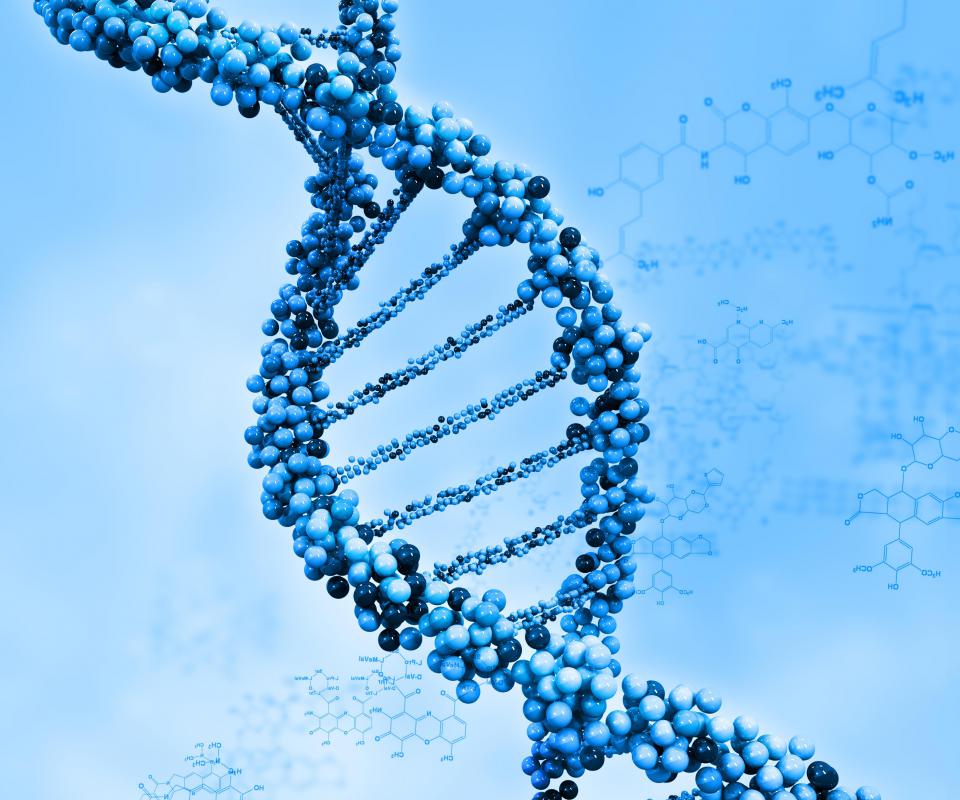At WiseGEEK, we're committed to delivering accurate, trustworthy information. Our expert-authored content is rigorously fact-checked and sourced from credible authorities. Discover how we uphold the highest standards in providing you with reliable knowledge.
What is Gene Expression?
Gene expression is the process of how a gene works within a cell. Researchers study gene expression to look into the relationships between small individual differences in DNA and different responses to medications, or risks for diseases. Gene expression has been a major focus of pharmaceutical research. Obesity and risk for heart disease are two examples of topics where it is an important focus of research.
Every cell contains DNA and genes in its nucleus. Genes are the specific instructions for cells that make every person and organism unique. Cells contain many genes, and not all of them are active. Within any given cell, some genes will be “on” or “off.” When a gene is “on,” it is making proteins or RNA products and affecting the functioning of the organism in some way. If a gene is “on,” scientists consider that it is being expressed.

The “on” and “off” state of all a cell’s genes is called its gene expression profile. Each cell has a unique gene expression profile. Research methods called gene expression profiling can identify which genes in a cell or tissue sample are “on” or “off.” Then, expression profiling is used to tell researchers which genes are playing a role in the condition under study.

For example, scientists might use gene expression to study obesity. Scientists work to see if they can figure out the patterns of small genetic differences between people who are obese and those of normal weight, controlling for environmental factors like diet and exercise. If they can figure out these patterns, it could lead to drugs that help control obesity.
They might do this by designing a study that compares gene expression for groups of individuals that are obese and of normal weight but have similar heights, exercise habits, and diets. Comparing gene expression between these two groups might identify which genes are implicated in obesity. Once these genes are identified, researchers can work on developing diagnostic tests for genetic predispositions, and drugs to treat or prevent obesity. These drugs could work either by inhibiting the genes that are implicated in obesity from working, or by interacting with DNA in cells and tissues to turn different genes “on” or “off.”
AS FEATURED ON:
AS FEATURED ON:












Discussion Comments
@Renegade
I agree that the connections are not very clear, but I also would emphasize my belief in the fact that people are a result of their genetic environment, and therefore their life choices, customs, etc., are a direct result of their genes. So indirectly, genetics do influence a society, but there are certainly other environmental factors which may play a role.
@dbuckley212
The "societal trends" you mention are likely well beyond the realm of genetics. For years, people have tended to link the genes and traits of people groups with their languages, but science is now showing this to simply not be the case. For example, Greeks are more genetically related to many Turkish-speaking peoples in Turkey than to their fellow Indo-European speaking Irish linguistic cousins.
@arod2b42
This is an interesting fact, but I believe that scientists are also recognizing an increasingly complex system in cellular genetics, which may take decades of research and thousands of researchers to tap into. The intricate structure of the human genome is infinitesimal in its detail and effects every detail of a person, as well as sometimes creating societal trends.
Various algorithms and computational systems are being developed to determine which genes people have in common in a given survey, and which traits these genes match up to. It is feasible that someday in the future we will have been able to match exactly which genes contribute to which traits, and will be able to easily treat people to increase their longevity and health.
Post your comments